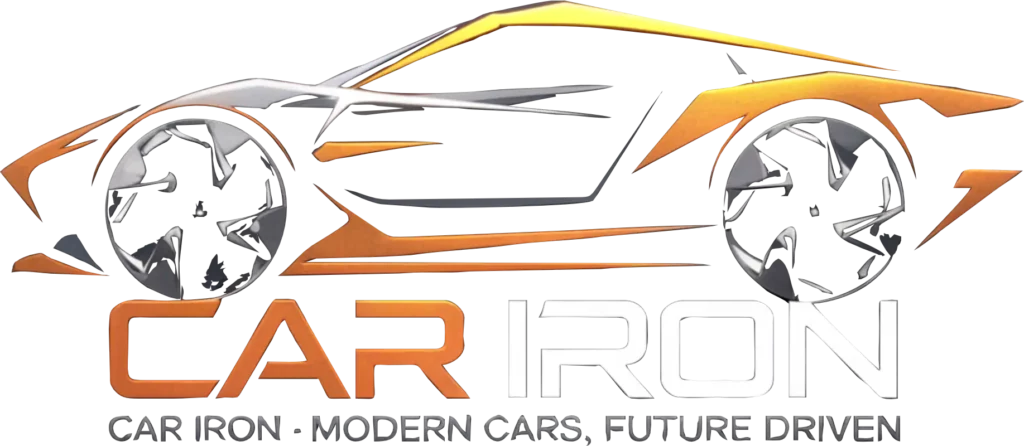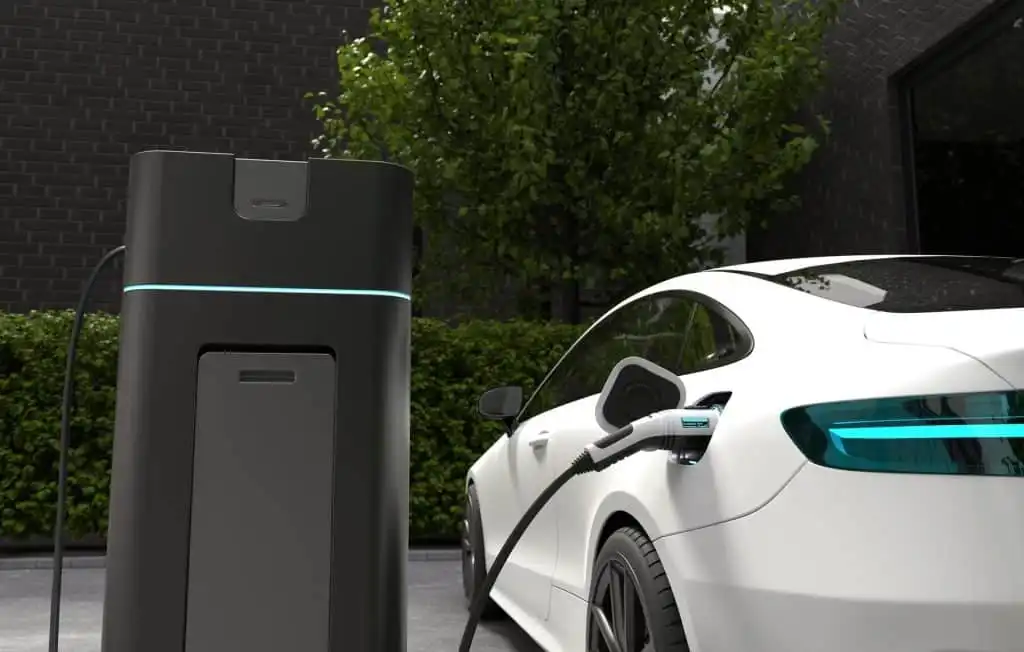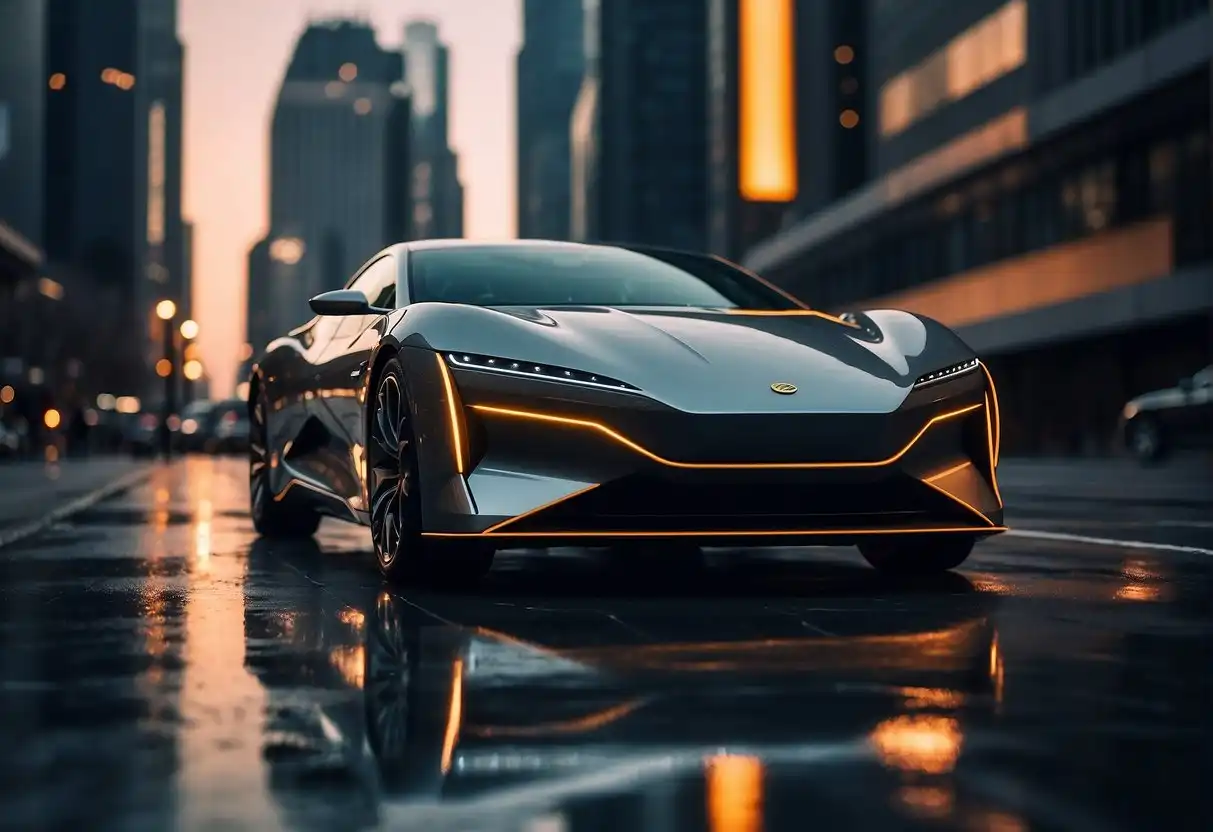The automotive industry is undergoing one of its most significant transformations, and at the forefront of this revolution are electric vehicles (EVs). Once considered a niche market, electric cars have now entered the mainstream, with automakers and consumers alike embracing their potential. With advancements in technology, sustainability, and performance, electric cars are reshaping the way we think about transportation.
In this blog, we will explore how electric cars are revolutionizing vehicle innovation, driving change in everything from vehicle design to manufacturing processes, and ultimately, shaping the future of mobility.
1. The Shift to Sustainable Mobility
One of the most compelling reasons behind the rise of electric vehicles is their role in creating a more sustainable future. With global concerns over climate change, pollution, and the depletion of fossil fuels, EVs offer a cleaner alternative to traditional gasoline-powered cars.
What makes EVs sustainable:
-
Zero tailpipe emissions: Unlike conventional cars that emit carbon dioxide, nitrogen oxides, and other harmful pollutants, electric cars produce no tailpipe emissions, which reduces air pollution and greenhouse gases.
-
Lower carbon footprint: While manufacturing an electric car can be more resource-intensive than traditional vehicles, over their lifetime, EVs have a significantly lower carbon footprint, especially when powered by renewable energy sources like wind or solar.
-
Recyclable materials: EV manufacturers are increasingly using sustainable materials such as recycled plastics, sustainable fabrics, and eco-friendly metals, further contributing to reducing the vehicle’s environmental impact.
Why this matters:
-
With governments around the world implementing stricter emissions regulations and setting ambitious sustainability goals, electric cars are crucial for reducing overall carbon emissions and achieving climate targets.
-
EVs also help reduce reliance on fossil fuels, paving the way for a more energy-efficient transportation system.
2. Innovative Battery Technology
At the heart of every electric vehicle is its battery, and ongoing innovations in battery technology are driving the transformation of the automotive industry. Over the past decade, the energy density, cost, and performance of EV batteries have improved dramatically, making electric cars more affordable and practical for everyday use.
Key advancements in battery technology:
-
Lithium-ion batteries: Modern electric cars primarily use lithium-ion batteries, which are lightweight and have a high energy density, allowing for longer driving ranges and shorter charging times.
-
Solid-state batteries: Emerging technologies, like solid-state batteries, promise even greater energy density, faster charging, and improved safety. This technology could be a game-changer for EVs, addressing one of the biggest challenges of electric vehicles: range anxiety.
-
Battery recycling: As demand for electric cars grows, so does the need for battery recycling. Companies are now developing more efficient ways to recycle EV batteries, reducing the environmental impact of production and minimizing the need for raw materials.
Why this matters:
-
Innovations in battery technology are key to making electric vehicles more accessible, affordable, and practical for consumers. Better batteries mean longer driving ranges, faster charging times, and lower overall costs for EV owners.
3. Design Flexibility and Performance
Electric cars are not just changing the way we power vehicles—they’re also transforming the design and performance of cars. Unlike traditional internal combustion engines (ICE), which require complex systems such as radiators, exhaust pipes, and a bulky engine block, electric vehicles have a much simpler design.
How electric cars are changing vehicle design:
-
More interior space: Without the need for a large engine or transmission, EVs offer more flexibility in terms of interior layout. This often translates to more cabin space and a flatter floor, providing more room for passengers and luggage.
-
Sleek, modern aesthetics: The absence of a traditional engine allows for more innovative and futuristic car designs. Electric vehicles often feature smooth lines, minimalist interiors, and unique styling that make them stand out from their gasoline-powered counterparts.
-
Improved performance: Electric motors deliver instant torque, which results in quicker acceleration and a smoother driving experience. EVs are known for their fast acceleration and quiet ride, offering a different kind of driving experience compared to traditional vehicles.
Why this matters:
-
Electric vehicles are not just about sustainability—they also offer an exciting driving experience. Their sleek design, modern aesthetics, and high-performance capabilities are reshaping the automotive industry and attracting a new generation of drivers.
4. The Rise of Autonomous Driving and Smart Features
The rise of electric cars is also fueling the growth of autonomous driving technology. Many electric vehicle manufacturers, especially Tesla, have incorporated autonomous driving features like autopilot and self-parking. These innovations, powered by sensors, cameras, and artificial intelligence (AI), have the potential to transform the driving experience and improve road safety.
How EVs are advancing autonomous driving:
-
Integrated technology: Electric vehicles are often equipped with the latest in connectivity, offering features like over-the-air software updates, navigation assistance, and advanced driver-assistance systems (ADAS).
-
Autonomous vehicle development: EVs are well-suited to integrate with autonomous vehicle technologies because their electronic systems are easier to modify and upgrade than those in traditional cars.
Why this matters:
-
The integration of autonomous driving features into electric cars is paving the way for safer, more efficient, and more convenient transportation. This synergy between EVs and AI could lead to fully autonomous vehicles in the near future, reducing traffic accidents and improving mobility for all.
5. Charging Infrastructure: The Key to Mass Adoption
One of the biggest hurdles to the widespread adoption of electric vehicles is the availability of charging infrastructure. However, significant investments are being made to expand and improve the charging network. Governments, private companies, and automakers are working together to install more charging stations, making it easier for people to charge their vehicles at home, at work, or on the go.
Developments in charging infrastructure:
-
Fast charging networks: Companies like Tesla, Ionity, and Electrify America are building networks of ultra-fast charging stations that can recharge an electric car to 80% in under 30 minutes.
-
Home charging solutions: More and more EV owners are opting for home charging solutions, which are becoming more affordable and accessible. Many EVs can be charged overnight, providing a convenient and cost-effective option for daily use.
-
Wireless charging: Emerging technologies like wireless charging pads may allow electric vehicles to charge without the need for plugging in, further simplifying the charging process.
Why this matters:
-
Expanding the charging network is crucial for ensuring that electric vehicles can be conveniently charged, especially on long trips. The availability of fast charging stations and home charging solutions will eliminate range anxiety and make EVs a viable option for a wider range of drivers.
6. Electric Cars and the Future of the Automotive Industry
Electric cars are not only changing the way vehicles are designed—they’re transforming the entire automotive industry. From the way cars are manufactured to the role of dealerships and after-market services, the shift toward electric mobility is reshaping every aspect of the industry.
How the automotive industry is evolving:
-
Sustainability: Manufacturers are shifting to more sustainable production methods, using renewable energy in factories and sourcing materials responsibly.
-
Electric vehicle production: Leading automakers, including Ford, General Motors, and Volkswagen, are investing billions of dollars in electric vehicle production, signaling a significant shift toward electrification.
-
New business models: The rise of EVs is also fostering new business models in the automotive industry, such as vehicle subscription services, ride-sharing platforms, and the development of vehicle-as-a-service (VaaS).
Why this matters:
-
Electric cars are driving the entire industry toward a more sustainable, efficient, and technologically advanced future. The shift to EVs is creating new opportunities for innovation, jobs, and economic growth.
Conclusion
Electric cars are at the heart of a revolution in the automotive industry. From advancing sustainability and performance to driving innovation in autonomous driving and smart technology, electric vehicles are reshaping the way we think about transportation. With continued advancements in battery technology, charging infrastructure, and vehicle design, the future of electric vehicles looks brighter than ever.
As electric cars continue to evolve and become more mainstream, they will not only change the way we drive but also play a crucial role in building a more sustainable, efficient, and connected world. The revolution in vehicle innovation is well underway, and electric cars are leading the charge toward a cleaner, smarter future.






